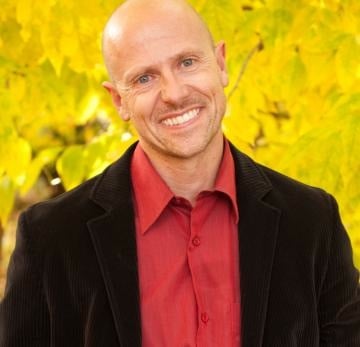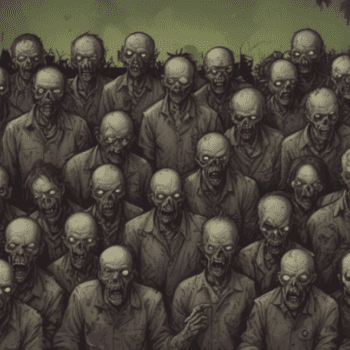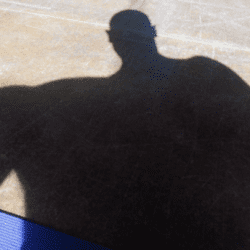The average American churchgoer doesn’t tithe 10% of their income to their local church. They don’t even give 5%! The average American churchgoer gives but 2.4% of their income to their church — and a whole lot of folks give a lot less than this! If any of those are people who want to cut taxes and yet claim that they want thechurches to do things, they don’t really want to help! They don’t want to help anyone! They just want to hold on to their money! Hmmpphh!!
Today’s Peace with Justice Sunday happens to fall at a time when our nation is at war. We’re a nation at war, and we’re at war on several fronts. From a worldly perspective, it’s made sense for us to retaliate against al-Qaeda and to engage in Afghanistan as we have. But from a Christian perspective, most of the Christian Church and denominational leaders — including our own — have contended the way and manner we waged war with Iraq failed to meet the criteria for a Just war. Now we don’t have to agree with them, but that’s what they said.
Christians are called to be pacifists. However, we happen to live in a country that has a Department of Defense, and supposedly it’s the best in the world! It’d besurprising if it wasn’t, as the U.S. spends as much on our Defense Department as nearly all of the other nations in the world do — combined!
To the extent that the U.S. is a “Christian nation,” what about having a Department of Peace? Seems like we ought to be spending far more time and energy beefing up our negotiation and diplomacy skills and procedures than we do. Seems like any wars that we fight ought to be waged only after all other means have been fully explored and attempted. But we can’t really explore or attempt those ways and means if we don’t devote power, prestige, and resources to them!
I think that a fella who was a whole lot brighter than I’ll ever be may’ve had it right when he said, “You cannot simultaneously prepare for war and for peace.” That was Albert Einstein, but I don’t think it takes a rocket scientist to see the truth in that!
Another simple truth is seen in Martin Luther King, Jr.’s observation that “Peace is not just the absence of war, it is the presence of justice.” It reminds me of a photo I saw in the paper this past March of someone holding a sign at one of those peace rallies that took place. The sign simply said, “No justice. No peace.” It was powerful.It’s similar to the Roman Catholic teaching, “If you want peace, work for justice.” This isn’t a liberal catch phrase. It’s not the rallying cry of leftist or socialist rabble-rousers. It’s simply a stated truth. If there is no justice, there can be no peace. I’d like you to think about that for a minute. If governments in places like El Salvador or in the Middle East deny their people, especially their poorest people, justice, the people will be resentful and troublesome. Perhaps, like the early American colonials suffering under the injustice of George the Third, the people will take to arms and revolt. No, unless there is justice in the land, peace will not follow.
All right, this sermon’s been a bit heavy this morning. It’s been a bit heavy on issues and concepts that are frankly huge and hard for us to get our minds around.
So I’d like to break it down to something that’s truly more down to earth and practical.
Let me focus on one bite sized — or sip-sized — tangible issue. (I take a sip of coffee)
Amos talked about those people who asked their spouses to fetch them “something good to drink,” well, here’s something really good!
In today’s world, there’s perhaps no greater barrier to the building of God’s Kingdom than the willingness of the few to profit at the expense of the many. All around the globe, millions of our brothers and sisters toil in conditions we can’t even imagine, and they work for wages that fail to provide any measure of stability or security. As Christians, it is God’s expectation for us to live in solidarity with these exploited workers by speaking out against this injustice.
We’re also called to use the wealth that God has placed in our care to bring about positive change on their behalf. The exploitation of workers in the developing world has become standard operating procedure in the new global economy. Nowhere is this problem more acute than in the coffee industry.
Second only to oil, coffee is the most heavily traded commodity in the world. It originates from plantations that are traditionally run and owned by wealthy landowners, or small family-run operations that are primarily owned by impoverished farmers. These small farmers frequently live in isolated communities, and rely on middlemen in addition to processors, creditors, exporters, and brokers to buy their coffee. Fluctuating market prices make it difficult for farmers to plan for the future, and prices are often set below the cost of production. So, the way the system’s set up, coffee farmers just aren’t able to get a fair return for their labor! When we purchase most of the coffees that we find in our grocery stores, we’re actually participating in this system that traps so many coffee growers and their families in the developing world in cycles of poverty.
Throughout the developing world, hundreds of thousands of small coffee farmers and workers have lost their jobs due to the current coffee crisis. In many situations, farmers must choose between starvation and growing coca, which is used to make cocaine.
And yet, in spite of all this gloomy darkness, there’s light at the end the tunnel for the world’s small coffee growers! That light’s coming from an alternative economic model that doesn’t adhere to the premise that “good business” and “the common good” are opposed to each other. This system is called “Fair Trade.” The international standards of Fair Trade work to ensure that the people who grow the things we consume are paid a fair wage for their labors by having consumers buying directly from the co-ops that the farm workers own and govern themselves.
The United Methodist Book of Discipline states that “Consumers should exercise their economic power to…avoid purchasing products made in conditions where workers are being exploited…[and] we call upon consumers, including local congregations …to organize to achieve [this] goal.” (¶163D)
In response to this call, The United Methodist Committee on Relief has developed the UMCOR Coffee Project. UMCOR’s partner in this project is the employee-owned fair trade organization Equal Exchange. In 1991, Equal Exchange became the first company in the United States to adopt internationally recognized fair trade standards.Today, the organization remains one of the few companies committed to these standards on 100% of its coffee, tea, and other products.
We’ve got some of this coffee here today, and so this morning, during the fellowship time after worship, think of the coffee that you’re drinking as more than just a great way to get your day started. Think of it as a Just way to get your day started and think of it as building God’s Kingdom — one sip at a time!
Okay, my coffee sales-pitch is over now. But I need to close with the real sales-pitch that’s the basis of all of these calls to peace and justice. It’s the sales pitch for the Gospel of Jesus Christ.
The basis for the Christian concepts of peace and justice is God’s forgiveness of sins. Yes, God does have high expectations and standards for us to live up to. And yes, God does call us to account for them. But the Christian yearning for peace and justice is possible. It’s a natural fruit of lives converted to the Gospel and Kingdom that are ushered in and made possible by the life, death, and resurrection of Jesus Christ.
Our social action is centered in our own experience of God’s mercy for us. As it says in 1st John 4:19, “We love because God first loved us.” We’re merciful because God is merciful to us. And if we accept that Gospel Good News, then we need to follow the ways and teachings of Jesus, the One Who called us not to be peace lovers, but peace makers.
As Jim Wallis put it in his book Call to Conversion, we don’t all need to be sign-carrying protesters shouting for “justice!” The challenge for us is to listen to the still small voice of God in our hearts, Who isn’t shouting “Justice!” but instead whispering, “Were you fair to your brother? Did you hurt your sister’s feelings?” And then to be open to the subtle nudging of the Holy Spirit reminding us that there will be no peace until we make it right. We need to know our failings and where we fall short, but we are much more than our sin. We’re beings of infinite worth, capable of incredible beauty and meaning. And yet we all blow it — we sin.
But we aren’t defined by our sins. We’re much more than that! We have the ability to sin, and to repent; the power to hurt, and to heal; the ability to offend, and to say, “I’m sorry;” the capacity to be hurt or offended, and the power to forgive; the power to make justice, and the power to make peace! God has given us the capability to change our ways.
Because of Jesus, we are able to shift our loyalties and allegiances from the ways of the world to the ways of God’s Kingdom; to turn away from being cogs in the warring worldly systems and toward being followers of The Way — the peace-making way of Jesus Christ.
Christians are called to be peacemakers and evangelists of the Christian Gospel of the forgiveness of sins. Christians are also called to be justice-makers — people who do what they can to create a world where there will be as few sins and transgressions committed as possible! For we know that there’ll be less to forgive if there are fewer sins and offenses committed! And we know there’ll be much less of a need for bandages in a world where “justice rolls on like a river, and righteousness like a never-failing stream!” (Amos 5:24) And all God’s people said? Amen!!
A nation that continues year after year to spend more money on military defense than on programs of social uplift is approaching spiritual doom.
Martin Luther King, Jr.
Every gun that is made, every warship launched, every rocket fired, signifies in the final sense a theft from those who hunger and are not fed, those who are cold and are not clothed.
Dwight D. Eisenhower
Gonna lay down my sword and shield, Down by the riverside, Down by the riverside, Down by the riverside, Gonna lay down my sword and shield, Down by the riverside, Ain’t gonna study war no more.
American Spiritual
 Roger Wolsey is an ordained United Methodist pastor; author of Kissing Fish: christianity for people who don’t like christianity, and an active participant on The Christian Left Facebook page.
Roger Wolsey is an ordained United Methodist pastor; author of Kissing Fish: christianity for people who don’t like christianity, and an active participant on The Christian Left Facebook page.
The photo at top of post is of Rev. Wolsey serving water and snacks to participants and police officers at the Occupy Denver in October, 2011.
















